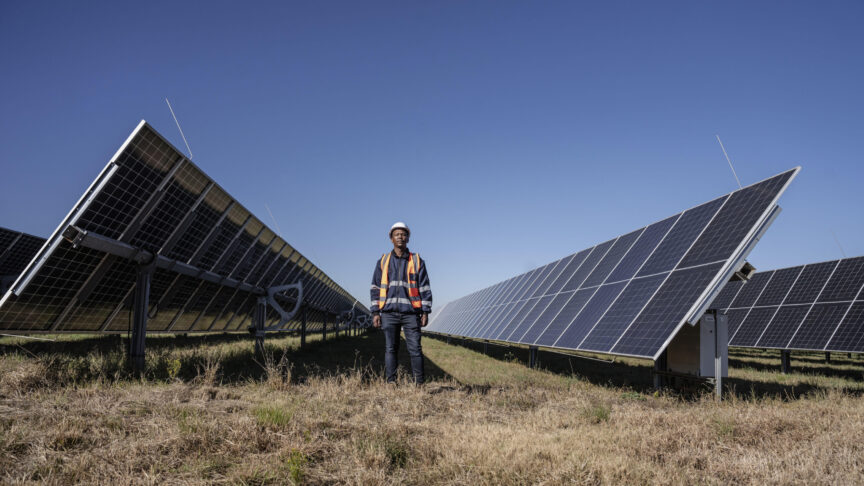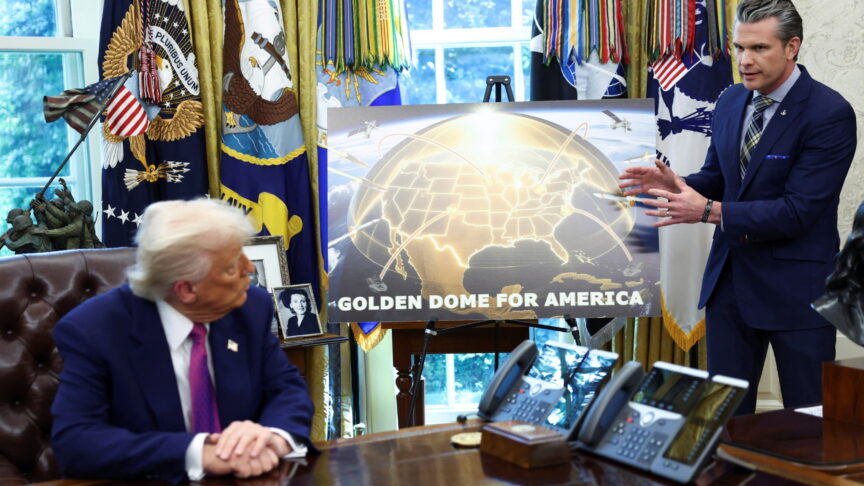Can Poland remain a leader of EU foreign policy?
The Ukraine crisis pushed Poland to the forefront of EU diplomacy, but as Germany stepped up, Poland’s leadership was sidelined.
In 2014 Poland confirmed its role as one of the European Union’s foreign policy leaders. The Russian-Ukrainian conflict hit Poland’s interests hard, and Warsaw was put in the driver’s seat of EU diplomacy almost by default. However, as the crisis persisted and evolved, it also showed the limits of Poland’s leadership potential. These constraints became particularly visible in Poland’s relations with Germany and the Visegrad states.
The end of 2013 brought a spectacular setback in the EU’s eastern neighbourhood, as Ukraine drifted away from the union and thus undermined Poland’s central long-term foreign policy goal of extending EU integration to the east. The subsequent conflict with Russia significantly weakened Poland’s security – public perception in Poland is that the country has not been under such threat since 1991. A poll from early 2014 found that 47 percent of Poles believed that the country’s independence was at risk. These factors shaped Polish foreign policy in 2014. The new policy was characterised by “securitisation” as well as the return of Atlanticism.
The European Foreign Policy Scorecard 2015 shows that Poland played an instrumental role in forging the EU response to Russia’s actions against Ukraine, especially in the initial phase of the conflict. Prime Minister Donald Tusk’s tour through European capitals in February 2014 raised awareness of the crisis in the east and its far-reaching implications, which stretched well beyond the eastern neighbourhood region. And Foreign Minister Radoslaw Sikorski’s mediation in Kyiv on 21 February (in the Weimar format with French and German counterparts) was one of the highlights of the EU diplomacy. Poland stood in the first rank of countries demanding a bolder EU response to the annexation of Crimea. It supported from the very beginning personal and economic sanctions against Russia – despite the economic costs for itself, especially in the agricultural sector. While Warsaw certainly belonged to the hawks in the EU, it has always prioritised a common EU stance over any unilateral action.
Conflict with Russia significantly weakened Poland’s security – public perception in Poland is that the country has not been under such threat since 1991
However, as events continued – and as Germany assumed more responsibility for shaping the EU’s policy on the conflict – Poland’s role diminished. In June, German Chancellor Angela Merkel and French President François Hollande initiated the so-called Normandy quartet (with Russia’s President Vladimir Putin and Ukraine’s President Petro Poroshenko). This grouping has now become the main format for political negotiations on the Ukraine crisis. This caused Polish commentators to accuse Germany of talking “over our heads” with Russia (evoking obvious historical memories) and to speculate about the end of Polish-German cooperation in solving the crisis in Eastern Europe. Indeed, many Polish observers and some policymakers suspected that Germany was trying to mastermind a deal with Moscow that would ignore the vital interests of Kyiv (and of Warsaw). Such fears proved largely unfounded; Germany adopted a tougher stance during the summer and advocated strongly for the imposition of a third wave of sanctions on Russia, despite opposition from many EU member states.
On closer inspection, Poland’s current approach to Ukraine does not differ much from Germany’s strategy. Even Warsaw has not pushed for military support for Kyiv, not least due to fear of escalating the conflict and doubts about the reliability of the Ukrainian army. Nor does Warsaw deny the need for political negotiations with Moscow, even though success is deemed unlikely (a view it shares with Berlin). Thus, as much as Poland’s leaders might be frustrated about being sidelined in the EU-Russia-Ukraine negotiations, they do not see – at least in the short term – much room for defining a substantially different policy. However, the marginalisation of Poland in the diplomatic process was a painful setback for Warsaw’s diplomacy.
The marginalisation of Poland [in the EU-Russia-Ukraine negotiations] was a painful setback for Warsaw’s diplomacy
It did not go unnoticed in Warsaw that Ukraine’s leaders, including new Foreign Minister Pavlo Klimkin (formerly Ukraine’s ambassador to Berlin), did not strongly insist on Poland being part of the negotiation format; instead, they opted to depend on Germany. From Kyiv’s perspective, Berlin seemed to hold all of the cards. And the diverse positions towards Russia and Ukraine of the other Visegrad countries (Hungary, Slovakia, and the Czech Republic) put an end to Poland’s dreams of a Central European coalition under its leadership. As the Ukraine crisis unfolded, the Visegrad Group did not follow the Polish lead. Poland received little support from its regional partners – except from the Baltic States and Sweden – in its efforts to persuade NATO to provide more reassurance for Central Europe. The outcome of the NATO summit in Wales in September left a bitter aftertaste for many in Warsaw, who thought that the alliance did not send a strong enough political signal to Moscow. The discussions surrounding the summit revealed the reluctance of both the United States and Germany to draw formal conclusions from Russia’s violation of international norms and treaties – for example, by shelving the 1997 NATO-Russia Founding Act, which forbids the permanent deployment of “substantial” NATO troops in Central and Eastern Europe, a step for which Poland had pushed.
The need for more reassurance in security policy prompted Poland’s shift back to Atlanticism. A new Polish-French rapprochement was one of the most remarkable developments in Polish foreign policy in 2013, but after the Ukraine crisis, Poland came to believe that only the US could offer real backing in security policy. The reasons for this conviction were, among others, Berlin’s restraint on Russia and on military issues, the Bundeswehr’s parlous condition, and France’s indecision about setting aside the Mistral deal with Russia. Defence Minister Tomasz Siemoniak publicly suggested that, for political reasons, US providers might stand a better chance of winning lucrative contracts under the Polish army’s €34 billion modernisation programme. Poland strongly supported the close coordination of the EU’s Russia policy with Washington and argued for a swift conclusion of the Transatlantic Trade and Investment Partnership negotiations.
The need for more reassurance in security policy prompted Poland’s shift back to Atlanticism
In response to the geopolitical uncertainties in the east, the Polish government also took the initiative in the field of energy policy. In April 2014 Donald Tusk sketched out the idea of “returning the European project to its roots” – the European Community was initially based upon the integration of steel and coal industries. He suggested using the template of the newly established banking union for the energy sector. Within the framework of the proposed “energy union”, the EU should develop reliable “solidarity mechanisms” to help its member states when they were threatened by cut-offs of gas supply. To shore up solidarity, the EU would act as funder (up to 75 percent) of infrastructure projects, such as gas storage facilities, interconnectors, and LNG terminals. Another pillar of the project would be making full use of the EU’s existing fossil fuels, including coal and shale gas. The most original, far-reaching, and controversial aspect of the Polish “energy union” idea is to create a single European body or at least Europe-wide and binding regulations for negotiating gas contracts for the whole of Europe with external suppliers (like Gazprom). Although the response was not always positive, the proposal became an important reference point in the discussion about the next steps for EU energy policy integration.
The change of government in autumn 2014 and the departure of Prime Minister Tusk and Foreign Minister Sikorski – both of whom shaped Polish foreign policy over the last seven years – raised questions about Warsaw’s aspirations and capabilities as a EU foreign policy leader. Regardless of questions of personnel, Polish diplomacy undoubtedly faces important challenges. Most importantly, it needs to come up with a more proactive stance and new ideas for the EU’s eastern neighbourhood if it is to return to its role of shaping policy rather than following others’ lead.
The European Council on Foreign Relations does not take collective positions. ECFR publications only represent the views of their individual authors.


